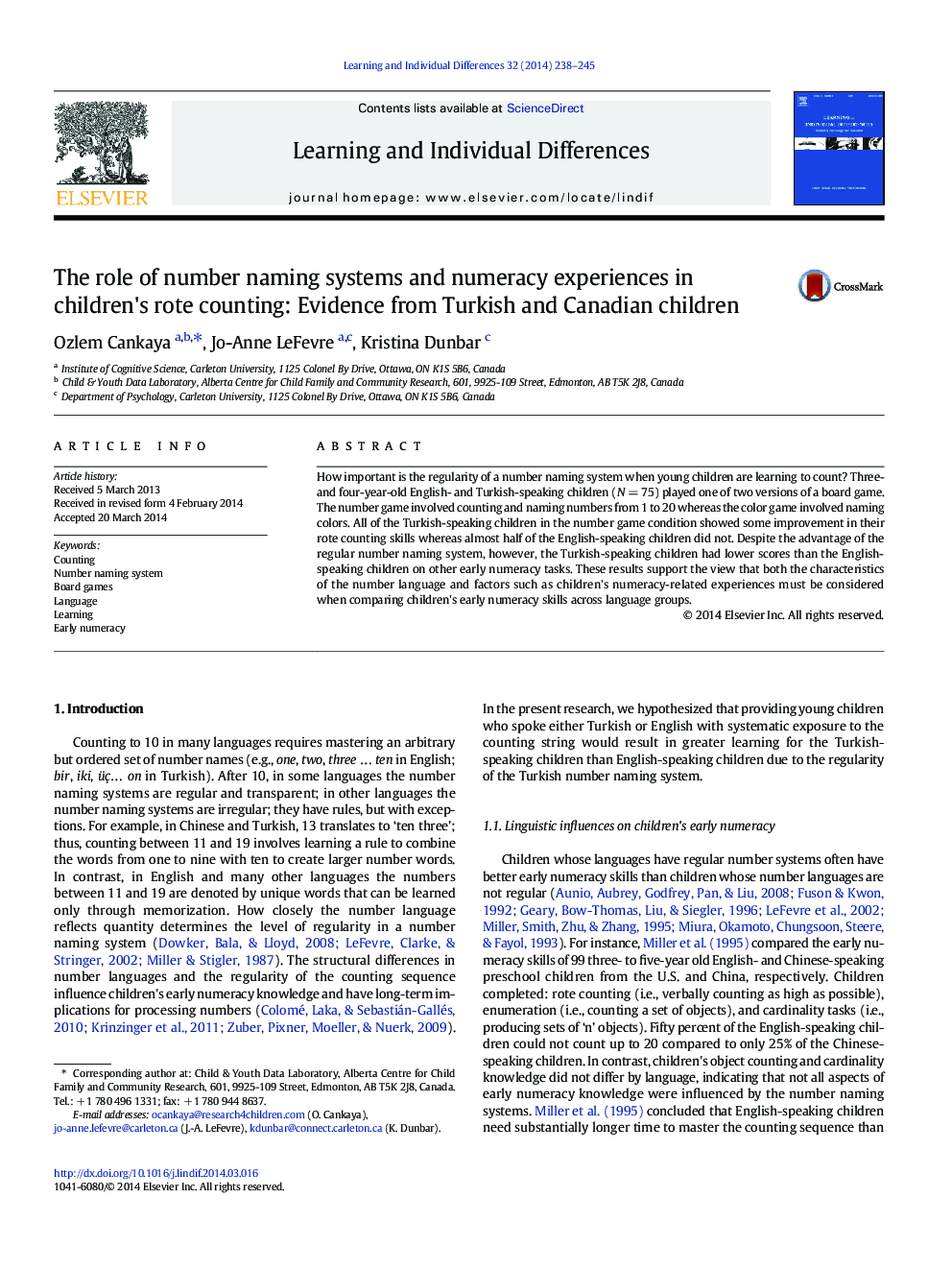| Article ID | Journal | Published Year | Pages | File Type |
|---|---|---|---|---|
| 6845159 | Learning and Individual Differences | 2014 | 8 Pages |
Abstract
How important is the regularity of a number naming system when young children are learning to count? Three- and four-year-old English- and Turkish-speaking children (NÂ =Â 75) played one of two versions of a board game. The number game involved counting and naming numbers from 1 to 20 whereas the color game involved naming colors. All of the Turkish-speaking children in the number game condition showed some improvement in their rote counting skills whereas almost half of the English-speaking children did not. Despite the advantage of the regular number naming system, however, the Turkish-speaking children had lower scores than the English-speaking children on other early numeracy tasks. These results support the view that both the characteristics of the number language and factors such as children's numeracy-related experiences must be considered when comparing children's early numeracy skills across language groups.
Related Topics
Social Sciences and Humanities
Psychology
Developmental and Educational Psychology
Authors
Ozlem Cankaya, Jo-Anne LeFevre, Kristina Dunbar,
